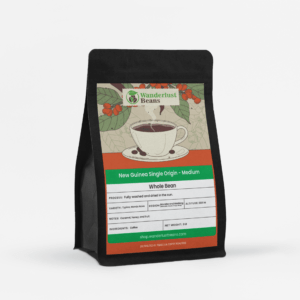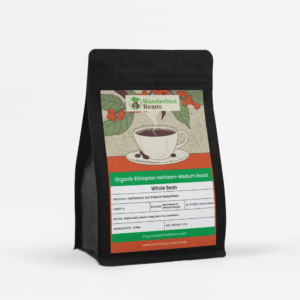Sustainable Cultivation: The Root of Eco-Friendly Coffee
In the world of beverages, coffee stands as a universal staple, a morning ritual for millions, and an industry worth over $100 billion globally. However, traditional coffee farming techniques have often been at odds with the environment, leading to deforestation, soil degradation, and biodiversity loss. Enter eco-friendly coffee: a beacon of sustainability in the agricultural sector. This approach involves growing coffee in a way that is harmonious with nature, such as shade-grown coffee, which avoids the clear-cutting of forests, preserving the natural habitat for countless species and preventing soil erosion. Moreover, eco-friendly coffee farming practices emphasize organic methods, shunning harmful pesticides and fertilizers that can leach into and pollute waterways, affecting both aquatic life and human health.
Organic coffee farms often employ intercropping strategies—planting other crops between coffee rows—which not only prevents soil depletion but also provides a habitat for wildlife and a secondary source of income for farmers. These practices are energy-conserving and carbon footprint-reducing, which is vital as climate change continues to impact global agriculture. By investing in eco-friendly coffee, consumers support a market that prioritizes the planet’s long-term health over short-term gains. This support goes beyond the environment; it extends to the well-being of the farmers. Eco-friendly coffee often comes with fair trade certification, ensuring that those who cultivate the coffee are paid fairly and work in safe conditions. This economic stability allows communities to thrive and invest in sustainable farming practices, creating a positive feedback loop that benefits everyone involved.
Consumer Impact: Brewing a Greener Future
The power of consumer choice cannot be overstated in the quest for a more eco-friendly coffee industry. When consumers opt for brands that prioritize environmental responsibility, they fuel a growing demand that reshapes the market. Each purchase of eco-friendly coffee sends a clear message to producers and retailers alike: sustainability sells. In response, more coffee growers are adopting eco-friendly practices, and retailers are stocking more sustainable options. This shift is not just about the environment; it’s about the health of the consumers as well. Eco-friendly coffee is often healthier, as it is grown without the use of synthetic chemicals that can end up in the final product. By choosing eco-friendly options, consumers are also taking a stand for their well-being and that of their families.
Moreover, the impact of choosing eco-friendly coffee extends to waste reduction. The coffee industry is notorious for generating significant waste, from the pulp and husks of coffee cherries to the packaging materials used to ship and sell the product. Eco-friendly coffee brands are leading the charge in reducing this waste by implementing biodegradable packaging and recycling the by-products of coffee production. The coffee grounds themselves can be composted, returning valuable nutrients to the soil and reducing landfill waste. In this way, the choice of eco-friendly coffee contributes to a circular economy, where waste is minimized, and resources are reused, leading to a more sustainable world.
The Global Influence of Eco-Friendly Coffee
The impact of eco-friendly coffee resonates on a global scale. As one of the most traded commodities in the world, coffee has the power to influence agricultural practices across continents. Eco-friendly coffee not only conserves natural habitats and promotes biodiversity but also encourages sustainable livelihoods and community development in some of the world’s most vulnerable regions. This global influence is crucial as the world grapples with the pressing challenges of climate change and environmental degradation.
By supporting eco-friendly coffee, consumers, retailers, and governments can collaborate to foster an industry that respects the delicate balance of our ecosystems. This collaborative effort can lead to innovation in sustainable agriculture, driving further advancements in eco-friendly practices. For instance, the use of solar-powered coffee drying machines or rainwater harvesting techniques in coffee processing can set new standards for energy and water conservation. The global reach of eco-friendly coffee also allows for the sharing of knowledge and sustainable practices between farmers worldwide, creating a united front against the environmental challenges facing our planet.
The shift towards eco-friendly coffee is more than a trend; it’s a movement towards a more sustainable and equitable world. From the preservation of natural resources to the promotion of fair trade and reduction of waste, the benefits of eco-friendly coffee are far-reaching. As consumers, every cup of coffee we drink can be a step towards a greener future, making the choice for eco-friendly coffee a powerful one indeed.








